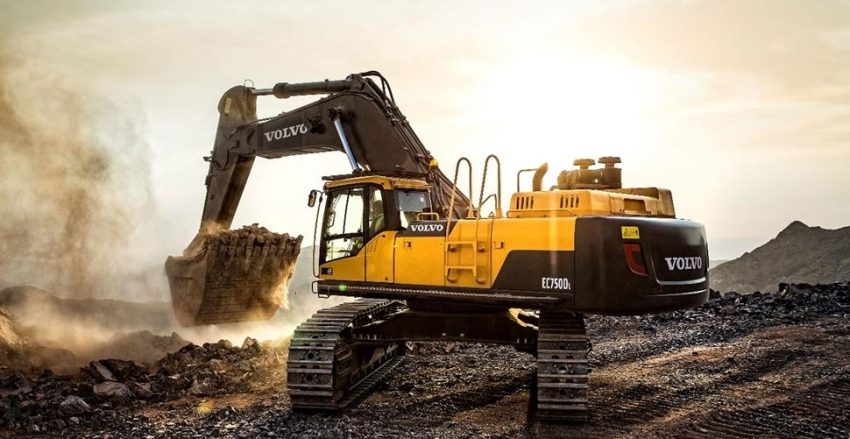The vital ingredient that keeps heavy machinery like crawler excavators operating smoothly and effectively is adequate lubrication. Whereas, the longevity and peak performance of your crawler excavator depends on the selection of the appropriate lubricants for each part of the machine.
Lubricants are actually chemicals especially used to lessen friction between moving parts, hence reducing wear and tear. Lubricants are essential for maintaining the functionality of the engine, hydraulic system, gears, and other vital parts of crawler excavators as well.
In this article, we will examine the many lubricants that are available for crawler excavators and learn what variables go into making that decision.
Engine Oil
Any piece of machinery, even crawler excavators, has an engine at its core. Specially formulated engine oils for these powerful engines lubricate internal parts as per requirement to ensure smooth operation and avoid overheating. In order to accomplish difficult duties, modern crawler excavators for sale frequently use high-performance engines. These machines’ engine oils must possess particular qualities to withstand their high temperatures and pressures. They lubricate engine components including pistons, crankshafts, and camshafts to lessen wear and breakage. As a result, the engine doesn’t overheat and continues to run efficiently for a longer period of time.
The operating temperature and load capability of the machine are important things to consider while selecting the engine oil. To fit the engine’s design and performance needs, manufacturers typically suggest particular oil grades and types. Hence, it is essential to follow these guidelines to guarantee top engine performance and avoid early wear leading to expensive repairs.
Hydraulics Fluids
The hydraulic system in the crawler excavator manages the movements of the boom, arm, and bucket. This system depends on hydraulic fluids for power transmission and precision control.
The hydraulic system uses hydraulic fluids, commonly referred to as hydraulic oils, as a means of transferring force and motion. They perform under extreme time constraints and are essential for the precise and efficient operation of crawler excavators. These liquids also serve as lubricants for hydraulic parts, minimizing wear and lowering friction as well. Hydraulic fluids come in a variety of forms, including synthetic, mineral-based, and biodegradable choices. Minerals-based hydraulic fluids are inexpensive and often utilized. Whereas the synthetic ones function better in rough environments and at high temperatures. Furthermore, the hydraulic fluids that degrade naturally are safe for sensitive locations and the environment.
There are various elements, including temperature range, load capacity, and environmental impact, affect the selection of the appropriate hydraulic fluid. To maintain proper hydraulic system operation, you should make decisions by operating circumstances and the manufacturer’s recommendations.
Gear Oil
In crawler excavators, gears are often used to enable effective and smooth power transfer. Gear oils prolong these essential parts’ lifespan and performance by shielding them from corrosion and wear. The tracks and attachments of the crawler excavator, among other components, depend on gears to put the engine’s power into action. These gears are lubricated by gear oils, which lower friction and heat accumulation while they are in use.
Different grades of viscosity in gear oils are available, each suitable for particular gear types and operating circumstances. In order to increase their functionality, they may also contain additives, such as anti-wear compounds to reduce gear wear and extreme pressure additives to support huge loads. When selecting a gear oil, it is important to consider the equipment’s working conditions, load, and gear type. It is crucial to adhere to the manufacturer’s specifications and maintenance schedule in order to ensure proper gear protection and performance.
Greases
Another significant and most sought-after lubricant is grease, which can be used to lubricate specific components including joints, bearings, and pivot points. Equipment owners prefer them as they can adhere well to surfaces and provide long-lasting defence against moisture and rubbing. However, semi-solid greases are ideal for applications where a lubricant needs to stay put and resist being washed away by water or other contaminants. They are widely used to lubricate rotating and frequently moving elements. Grease comes in a variety of forms, including those based on lithium, calcium, and polyurea. Grease made of lithium is flexible and appropriate for many applications. The water resistance of grease with a calcium base is better. Polyurea grease is widely known for operating effectively at high temperatures.
You must choose the appropriate grease, depending on variables such as operating temperature, load capacity, and speed. To maintain adequate lubrication and avoid early wear, it is vital to apply grease to specific components, such as bearings and joints.
Transmission Oils and final drive
Specialized lubricants are necessary for the gearbox or transmission and final drive systems in crawler excavators to enable a smooth power transfer and guard against wear and corrosion. The final drive transmits power from the gearbox to the tracks, while the gearbox system regulates the excavator’s speed and torque. Oils for transmissions and final drives especially help to withstand the high loads and pressures that these systems experience.
To withstand high pressures and temperatures, these lubricants often come in high-viscosity grades with additives. They give gears and bearings a layer of protection, reducing wear and maintaining effective power transfer. It is important to consider the working circumstances of the equipment and the manufacturer’s recommendations when selecting these oils. To keep these systems functioning properly and avoid expensive problems, routine maintenance, including oil changes, is also necessary.
Conclusion
For your crawler excavator to operate at peak efficiency and have a longer lifespan, it is important to understand the various lubricants that are available. Each lubricant has a distinct function; therefore, it is important to select it carefully depending on the working environment and manufacturer recommendations. Your crawler excavator will run smoothly and efficiently with routine maintenance, which includes lubricant changes, increasing productivity and reducing downtime.


